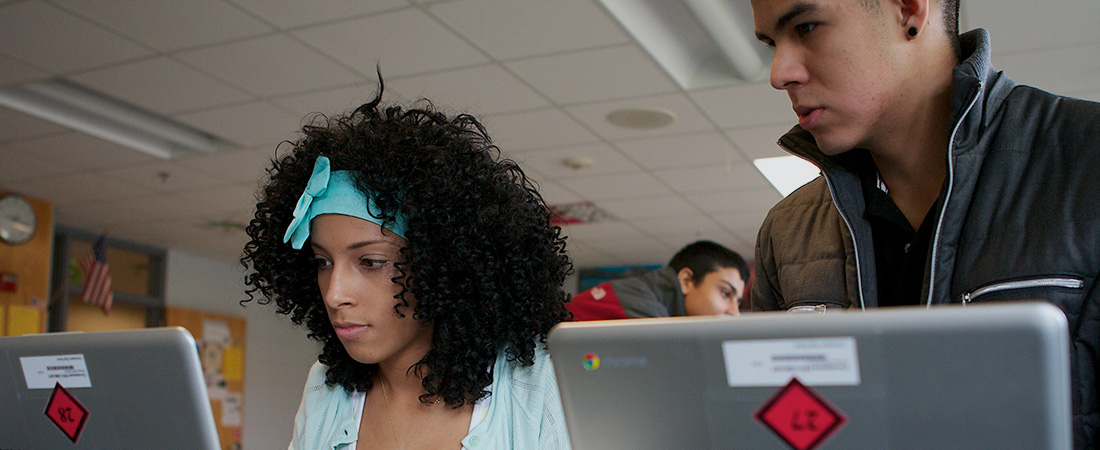
STEM skills—from computer programming to bioengineering—are the bedrock of the 21st century economy.
Not all students have a high-quality STEM education, which can limit their post-secondary learning and career options. EDC works to improve the quality, effectiveness, and equity of STEM learning and teaching, giving all students a solid foundation in computer science and creating pathways to STEM careers for students from underrepresented groups, students from low-income families, and English learners.
We develop STEM curricula, digital games, and apps that engage, excite, and challenge students, aiming to foster and use technology for robust STEM experiences. And through national resource centers and collaborative research, we guide STEM research and program design.
Learn about EDC’s work with Family STEM Communities.
Related Content
Tackling Inequity in the Mathematics Classroom
EDC’s Babette Moeller and Matt McLeod discuss their efforts to make mathematics teaching more equitable.
EDC Talks: STEM Education in Rural Schools
In this video, Pam Buffington discusses how to enrich STEM learning in rural communities.
A New Language for Mathematics
Young children often struggle to write down their mathematical ideas. Could computer programming be an easier language for them?
EDC Talks: Making Time for Family Math
What are some fun, easy activities that families can do to encourage math learning at home? (Hint: You are probably already doing some of them.)
Tapping, Swiping, and Learning Science
Research findings on The Cat in the Hat Knows a Lot About That!™ have implications for parents, educators, and educational media developers.
Projects
Resources
Here are a few of our resources on STEM. To see more, visit our Resources section.
What can cause climate change? What would it take to colonize another world? Will another large earthquake happen in California?
This report presents results of EDC’s Building State Capacity for Leadership in K–12 Computer Science Education Summit.
EDC’s Biology: Concepts and Practices, a yearlong high school course curriculum, fosters grade 9–12 students’ scientific and data literacy; builds their reading, writing, and oral communic
The Investigating U.S. Society with Data (USS-DATA) curriculum modules are designed to promote high school students’ statistical thinking and data literacy skills through investigations of social and economic conditions in the U.S.
As part of the 2015–2020 Ready To Learn Initiative, the Corporation for Public Broadcasting (CPB) and the Public Broadcasting Service (PBS) devised a new model of community partnerships called Comm
The proliferation of new technologies is changing the way we live, learn, and work. This white paper examines the complex and interconnected challenges related to workforce development, economics, education, equity, and ethics that our society must address to ensure our workforce is future-ready.
This website provides an overview of a professional development program for middle grades mathematics teachers and links to selected resources for use in in-person or remote instr
This document outlines a bold new vision for EDC's next chapter of work and impact. Building upon our 65-year legacy of global impact in education,
This factsheet describes the work of the USAID-Lower Mekong Initiative Conecting the Mekong through Education and Training (USAID-LMI COMET) project to narrow the devleopment gap in Southeast Asia throught the MekongSkills2WorkNetwork.
This report covers EDC’s process evaluation of Year 1 of the iDesign project, a three-year NSF ITEST-funded project to engage underrepresented youth in designing interactive, culturally and sociall